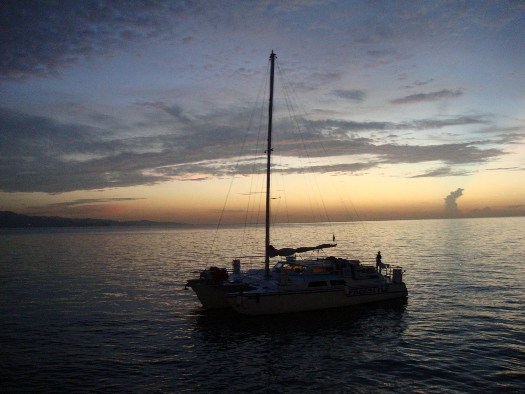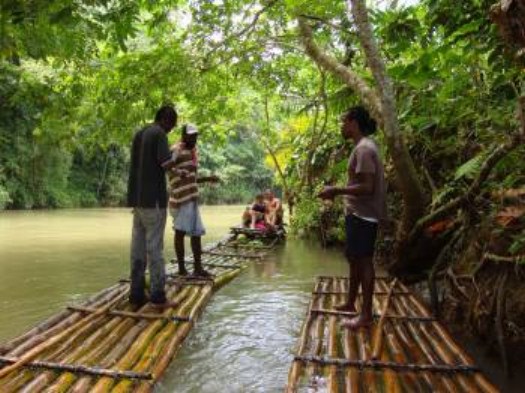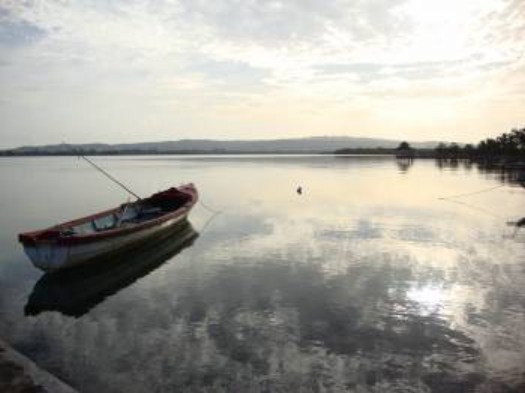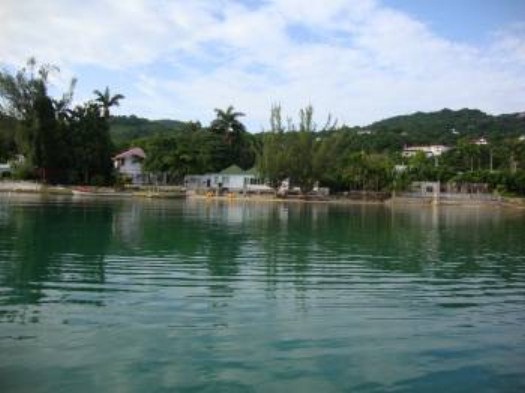I love Jamaica. Last summer I visited the island for the fifth time. I’m not sure I will return. Like many travelers, I try to talk to as many locals as possible and learn as much as I can about their food, their culture, and their way of life.
What I learned in Jamaica is this: the Jamaicans may have gained their independence from the UK in the sixties, but their own government has sold them out and sold off their dignity as well as their land. Conditions in Jamaica are indescribably poor. The living conditions are deplorable, the roads are a mess, the sales tax on everything is an obscene 17.5%, the schools are shanties, and the hospital is a crumbling facility that is filled to the brim with people in hallways receiving treatment. Jamaicans are not permitted to leave the country without an expensive visa or proof that they own land and will therefore return to the island.
So what does this mean for tourism? It means that Jamaicans will try to sell you everything from a piece of an aloe plant, to hair braiding, to a beach massage, to drugs, to a guided tour up the famous Dunn’s River Falls. It means that Jamaicans see tourists as their only source of income and they can be aggressive when pursuing a tip; some to the point of obnoxiousness.
On an overpriced rafting trip down the Great River, my raft guide Orrico explained how little of the fee goes to the guide. As we drifted past a Jamaican hauling a raft back up the river, Orrico told me that the men who do this are paid $5 per day.
“No one wants that job,” Orrico told me. The guides are paid slightly more, but they are paid by the trip, so on a rare busy day they can make $40 dollars. Jamaicans, if they have salaried jobs at all, work mostly in the hotels or as housekeepers in the private villas. A good job for a Jamaican is as a driver for a tour bus company. Even the craft shops are not owned by the person who is working there.
Aside from abysmal working conditions, the land itself is being violated. A former turtle preserve is now a popular resort. Huge resorts, some with nearly a thousand rooms, line the beaches spoiling the views as well as the pristine land. The rooms stand mostly empty. The island receives bad press and bad word of mouth, much of it from the tourists who disembark off the cruise ships for a few hours and are besieged by Jamaicans with their hands out looking for those tourist dollars. One American dollar is worth 80 Jamaican. Can you blame them?
Infrastructure barely exists. Sewer and water treatment plants are placed precariously close to beaches and locals warn you about swimming because of the run-off. As I watched spiny lobsters being pulled from the sea, I wondered how safe they were to eat. And yet, the land is lush and lovely. Sunsets are so beautiful they make your throat ache. When the fog rolls in over the mountains, it’s impossible to imagine a more mystical and stunning sight.

The vast majority of the people you meet are warm and welcoming. Many thanked me for coming to their country because so many of the tourists have fled. Why go to Jamaica when there are so many beautiful islands that are so much easier to visit? The Caymans, the Bahamas, the French islands of Martinique and Guadeloupe…all are beautiful and none have the glaring poverty that Jamaica has. But, at least in my view, none have the culture or charm.
On my recent trip, I was there on August 6; Jamaica’s Independence Day. Busloads of people started arriving at the free park in Montego Bay a day ahead of the celebration. They camped out under flimsy plastic tents. Some brought makeshift grills. Everyone brought Red Stripe beer. The smell of jerk permeated the air in between the drifting aroma of the ever-present ganja and notes of Reggae music. Jamaicans know how to party. But what are they really celebrating? They are much worse off than when I first visited here in the seventies. Most of them know this and feel powerless to do anything about their situation.
So my dilemma is this: if I give up and go somewhere else in the Caribbean where the drinks are cold, the water is blue-green, the conch fritters are just as good, and the poverty is not as notable, what happens to the Jamaicans? I work hard for my dollars and I don’t get to travel nearly as much as I’d like. I resent the Jamaican government for forcing me to make this decision. Why aren’t they more concerned about their own people? Greed. Corruption. Politics.
Just prior to my trip, Jamaican drug kingpin Christopher (Dudus) Coke was making headlines in the U.S. Coke was being sought in Kingston for extradition to the U.S. for drug and gun trafficking. The residents had a different view of Coke, however, and 76 people were killed by gunfire in an effort to protect him. In the slums in the western part of Kingston, Jamaicans consider him to be a hero for helping provide a small economy as well as protection for those living in the area. They are not too happy with Americans for taking him away.
The people of Jamaica need a better hero. Not a corrupt politician, nor a drug lord. Not even a musical genius like Bob Marley who is still worshipped. They need a hero to rise from their own neighborhoods and somehow fight the political corruption that steals their land and money. Someone who will begin to build a country with jobs, schools, hospitals, and roads. Jamaica needs to save itself from its own independence and then they will truly have something to celebrate.
Tina J. Gordon writes at www.teethetrav.travellerspoint.com


